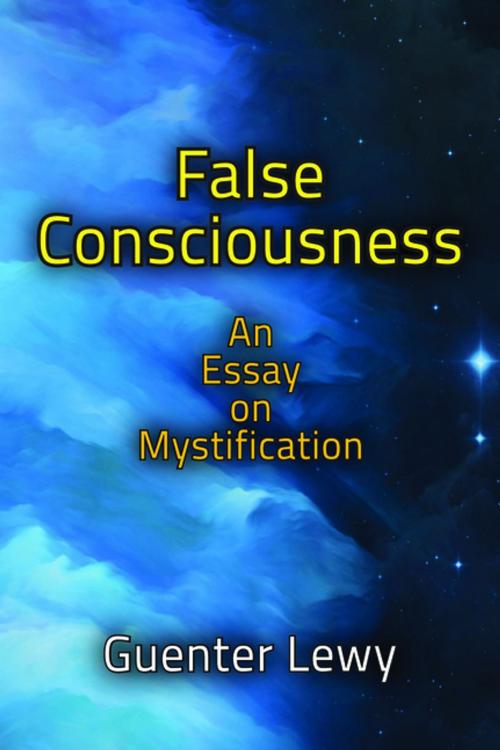False Consciousness
An Essay on Mystification
Nonfiction, Social & Cultural Studies, Political Science| Author: | Guenter Lewy | ISBN: | 9781351520621 |
| Publisher: | Taylor and Francis | Publication: | July 5, 2017 |
| Imprint: | Routledge | Language: | English |
| Author: | Guenter Lewy |
| ISBN: | 9781351520621 |
| Publisher: | Taylor and Francis |
| Publication: | July 5, 2017 |
| Imprint: | Routledge |
| Language: | English |
In this book, Guenter Lewy explains and critiques the idea of false consciousness - that people living under capitalism do not know their best interests. This idea was prevalent in the writings of nineteenth century Marxism, modern communism, and the New Left. Lewy applies what German scholars call Ideologiekritik to the Marxian concept of ideology or false consciousness itself, to demystify the concept of mystification. He also presents an account of the historical development of the concept, and the dangers of its application in society. Belief in false consciousness inspired many social scientists to propose that elite classes in capitalist countries use the media and the education system to manipulate the proletariat, thus perpetuating their own power. Lewy marshals social scientific evidence to refute that idea, demonstrating that education and the mass media in the United States in fact often challenge accepted values and the status quo. Lewy documents Soviet and Chinese brainwashing efforts to eradicate dangerous political ideas and values derived from a belief in false consciousness. He also reviews attempts by Marxist and neo-Marxist educators and social scientists in the Federal Republic of Germany (West Germany) to free young people from false consciousness by means of emancipatory pedagogy--a program of intense political indoctrination.
In this book, Guenter Lewy explains and critiques the idea of false consciousness - that people living under capitalism do not know their best interests. This idea was prevalent in the writings of nineteenth century Marxism, modern communism, and the New Left. Lewy applies what German scholars call Ideologiekritik to the Marxian concept of ideology or false consciousness itself, to demystify the concept of mystification. He also presents an account of the historical development of the concept, and the dangers of its application in society. Belief in false consciousness inspired many social scientists to propose that elite classes in capitalist countries use the media and the education system to manipulate the proletariat, thus perpetuating their own power. Lewy marshals social scientific evidence to refute that idea, demonstrating that education and the mass media in the United States in fact often challenge accepted values and the status quo. Lewy documents Soviet and Chinese brainwashing efforts to eradicate dangerous political ideas and values derived from a belief in false consciousness. He also reviews attempts by Marxist and neo-Marxist educators and social scientists in the Federal Republic of Germany (West Germany) to free young people from false consciousness by means of emancipatory pedagogy--a program of intense political indoctrination.















